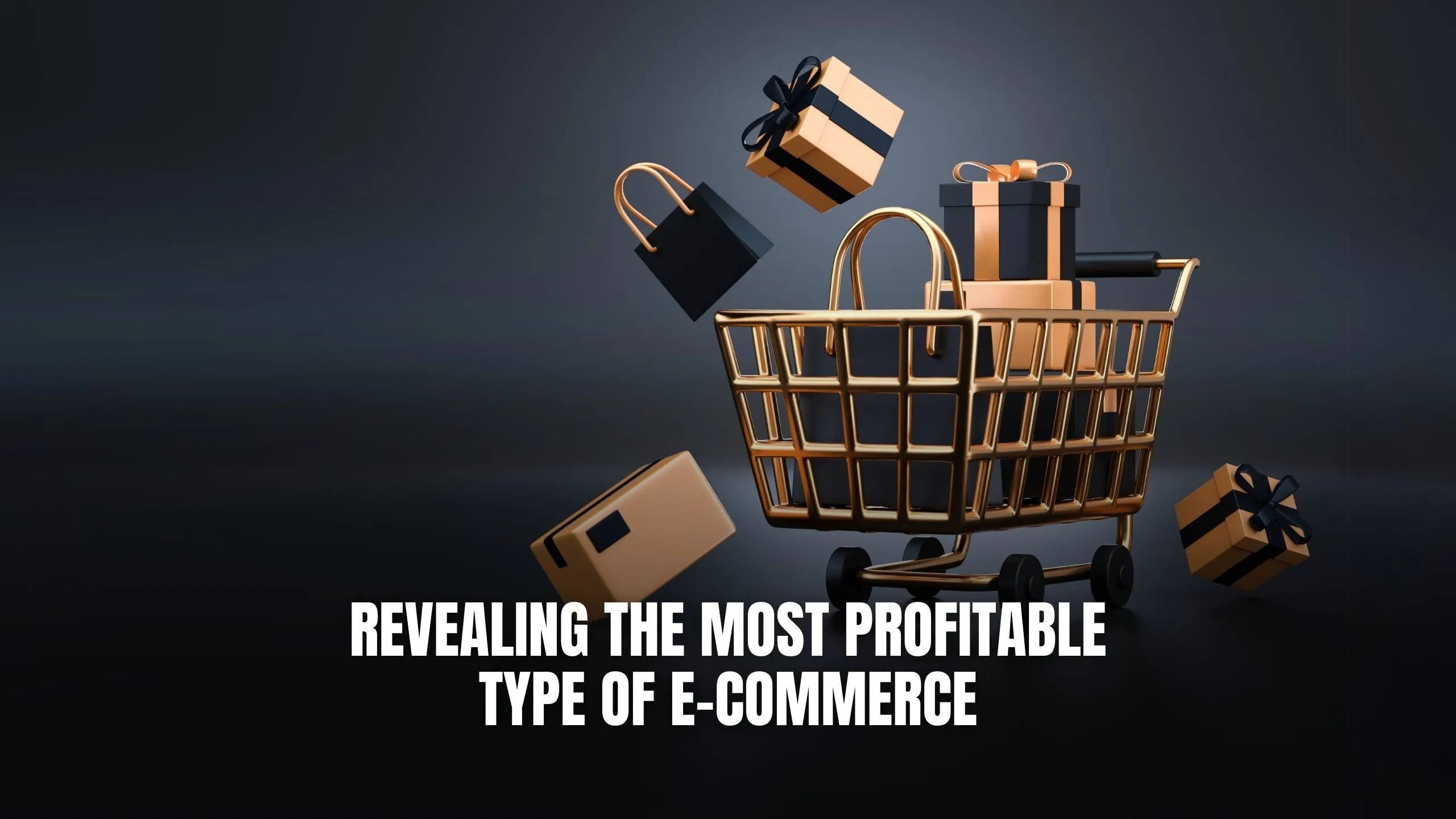Revealing the Most Profitable Type of E-commerce


Revealing the Most Profitable Type of E-commerce
In the vast realm of e-commerce, several models exist, each with its own advantages and profitability. Let’s delve into two of the most prominent types of e-commerce and analyze their potential for profitability.
1. B2B E-commerce: Capitalizing on Business Relationships
Business-to-Business (B2B) e-commerce involves transactions between businesses, such as manufacturers, wholesalers, and retailers. This model thrives on building strong relationships and catering to the specific needs of other businesses. B2B e-commerce often involves bulk orders, recurring purchases, and long-term contracts, leading to higher profit margins compared to consumer-focused models.
Situational Example: A manufacturer of industrial machinery relies on B2B e-commerce platforms to source raw materials and components from trusted suppliers. By leveraging B2B relationships, they can negotiate favorable terms, streamline procurement processes, and ultimately increase their profitability.
2. DTC E-commerce: Directly Engaging with Consumers
Direct-to-Consumer (DTC) e-commerce involves selling products directly to consumers through online channels, bypassing traditional retail intermediaries. This model allows brands to establish a direct relationship with their customers, gather valuable data insights, and control the end-to-end customer experience. DTC brands often focus on niche markets, unique product offerings, and personalized marketing strategies, enabling them to command premium prices and achieve higher profitability.
Situational Example: A niche skincare brand adopts a DTC e-commerce approach to reach its target audience of environmentally-conscious consumers. By selling directly to consumers through their online store, they can offer personalized recommendations, gather feedback, and build brand loyalty, leading to increased customer lifetime value and profitability.
Relevant SaaS Products:
- Shopify: Build and customize your online store effortlessly with Shopify’s comprehensive e-commerce platform, designed to streamline the entire process from setup to sales.
- BigCommerce: Scale your online business with ease using BigCommerce’s hosted e-commerce solution, offering robust features and built-in scalability for businesses of all sizes.
- WooCommerce: Leverage WordPress and WooCommerce for a customizable, feature-rich online store tailored to your business needs.
- Magento: Drive online sales with Magento’s flexible e-commerce, empowering businesses to create engaging, shoppable experiences and succeed digitally.
- Salesforce Commerce Cloud: Deliver personalized shopping experiences across all channels with Salesforce Commerce Cloud, enabling businesses to drive revenue and build customer loyalty through seamless e-commerce operations.
Conclusion
In conclusion, both B2B and DTC e-commerce models offer significant potential for profitability, albeit through different approaches. While B2B e-commerce leverages business relationships and bulk transactions to drive profits, DTC e-commerce focuses on direct consumer engagement, brand control, and niche market positioning. Understanding the nuances of each model is essential for businesses seeking to maximize their profitability in the dynamic e-commerce landscape.
Maximize Your E-commerce Potential with Subscribed.fyi!
Ready to elevate your e-commerce strategy and unlock new levels of profitability? Sign up for free on Subscribed.fyi to access exclusive deals on essential SaaS tools for e-commerce businesses. From marketing automation to inventory management, Subscribed.fyi offers secret deals and savings on top-rated tools to help you optimize your e-commerce operations and boost your bottom line.
Relevant Links:





